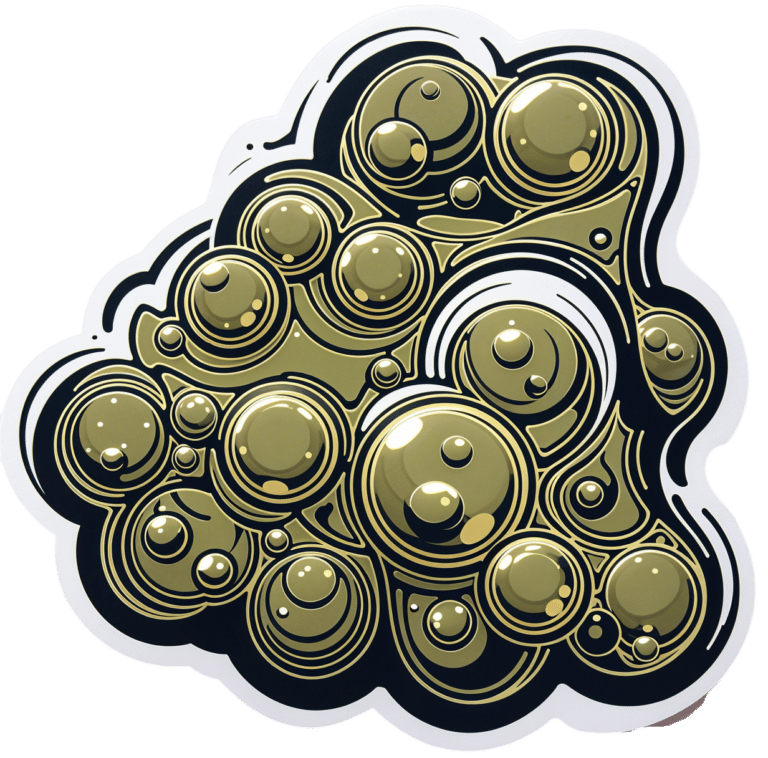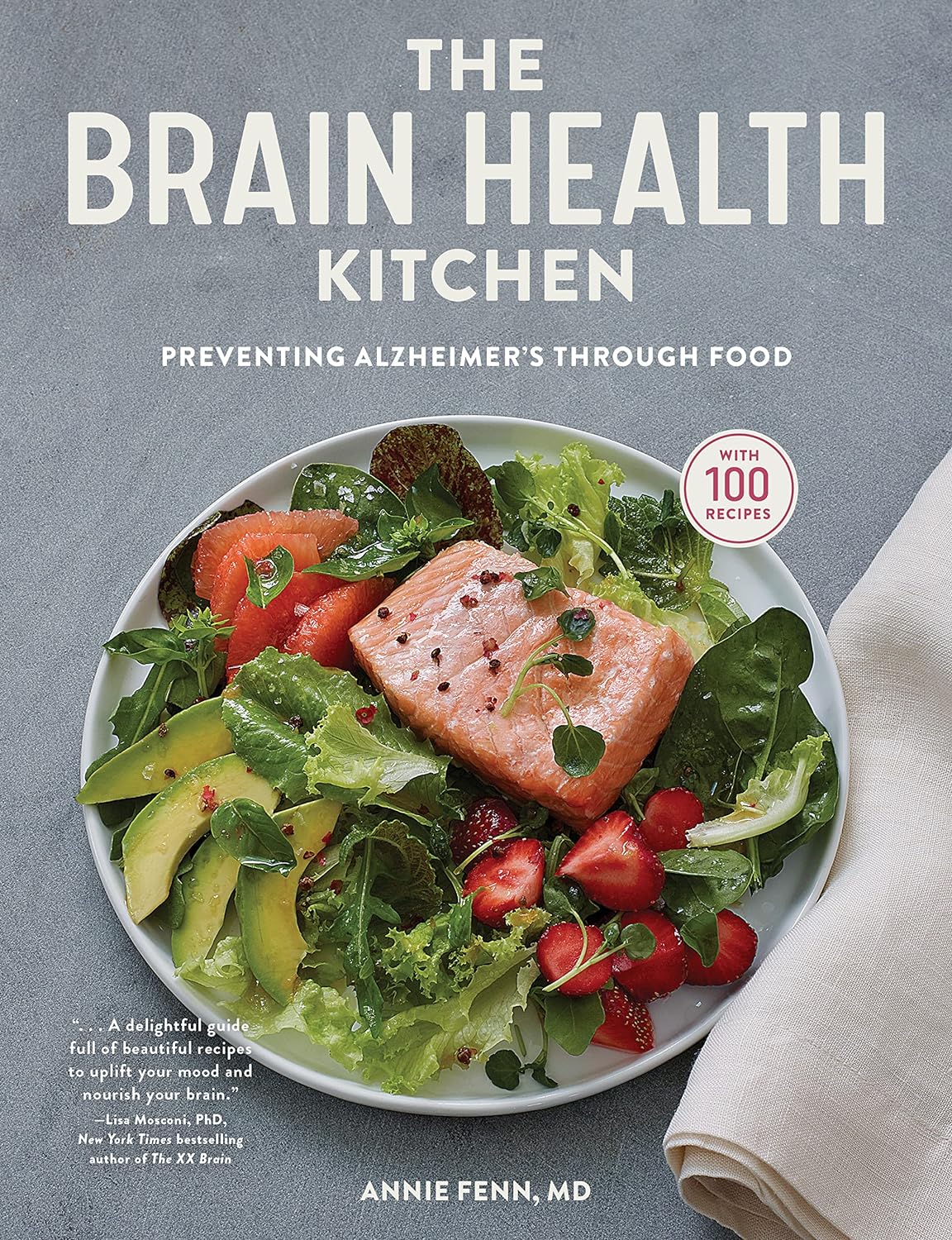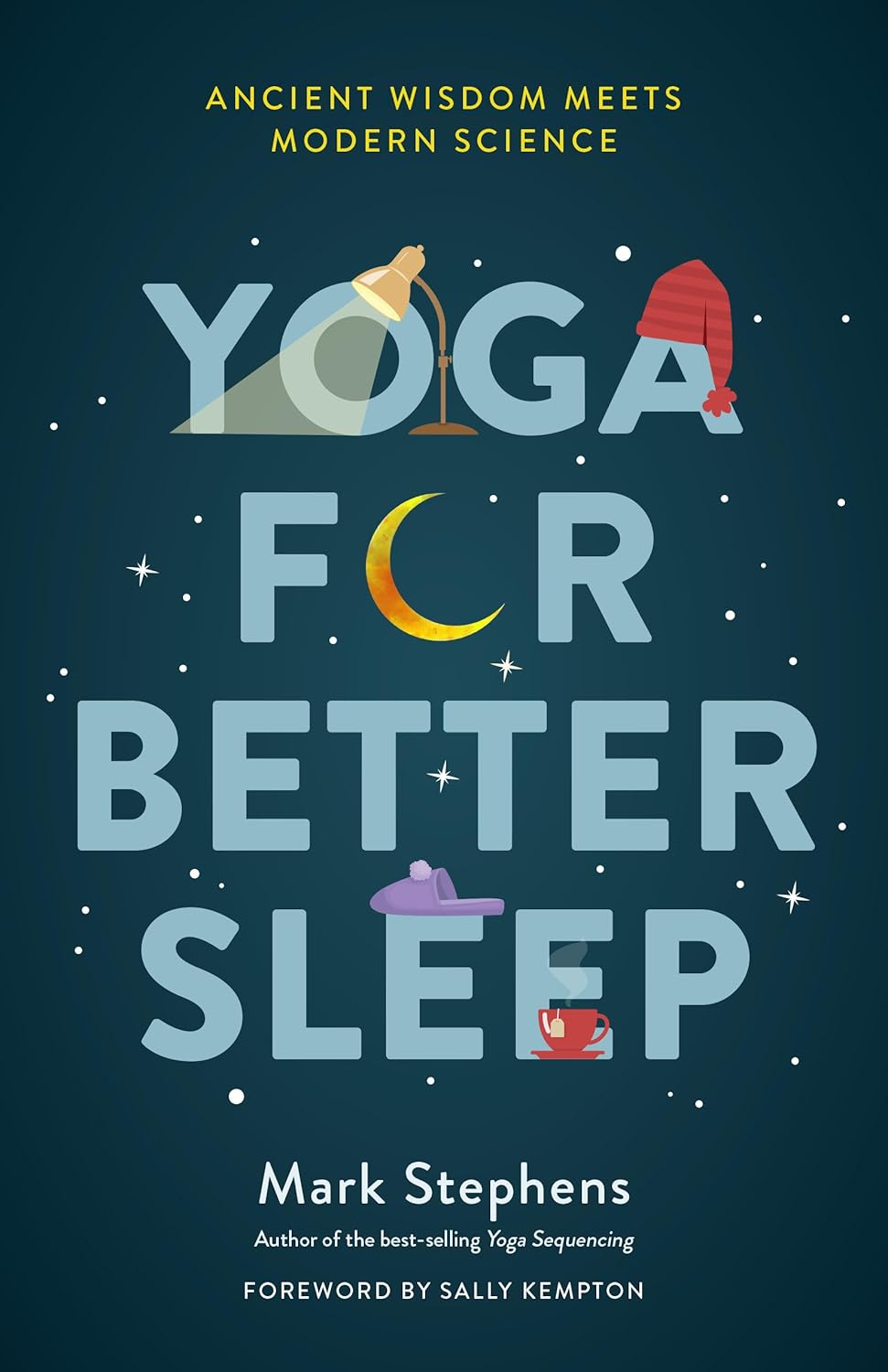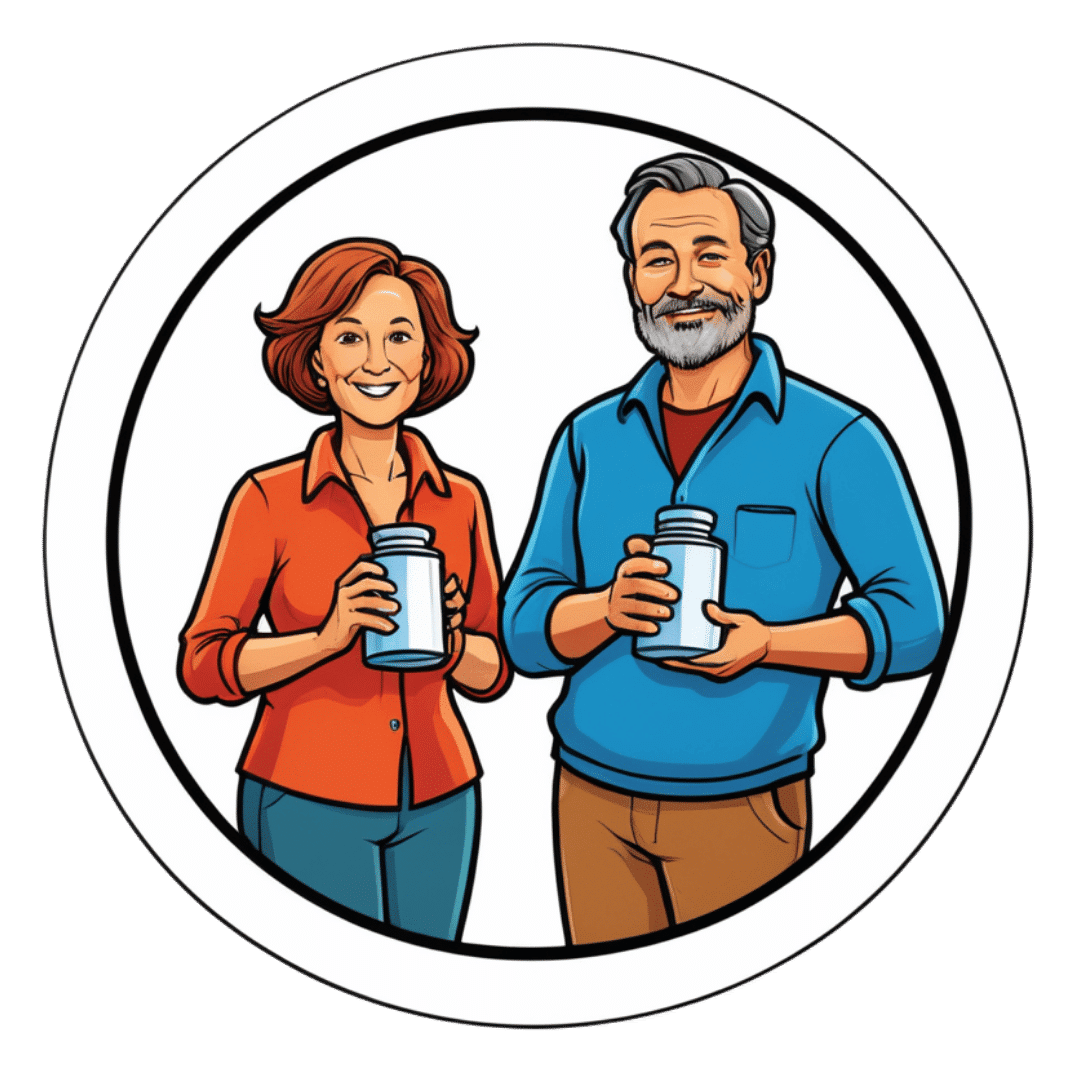
Policosanol: A Rival To Statins, Without The Side Effects?
10almonds is reader-supported. We may, at no cost to you, receive a portion of sales if you purchase a product through a link in this article.
Policosanol (which can be extracted from various sources, but is mostly made from sugar cane extract) is marketed as lipid-lowering agent for improving cholesterol levels, but its research history has not been without controversy:
2001: it works!
After a lot of research in the 1990s, it came out of the gate strong in 2001, with:
❝Policosanol (5 and 10 mg/day) significantly decreased LDL-cholesterol (17.3% and 26.7%, respectively), total cholesterol (12.9% and 19.5%), as well as the ratios of LDL-cholesterol to high-density lipoprotein (HDL)-cholesterol (17.2% and 26.5%) and total cholesterol to HDL-cholesterol (16.3% and 21.0%) compared with baseline and placebo❞
This, by the way, is comparable in efficacy to the most powerful statins, but without the adverse side effects.
Source: Efficacy and tolerability of policosanol in hypercholesterolemic postmenopausal women
Furthermore, its effects were not limited to postmenopausal women, and additionally, it was found that 20mg/day was sufficient for optimal effects; 40mg worked exactly the same as 20mg:
2006–2010: we do not trust the Cubans!
After it had been marketed and used in much of the world for some years, extra scrutiny was brought upon it, because the initial studies had been performed by the same lab in Cuba, a commercial lab that had tested them for a private interest (i.e., a company selling the supplement):
Heart Beat: Policosanol: A sweet nothing for high cholesterol
And furthermore, US-based labs were unable to replicate the results:
Policosanols as Nutraceuticals: Fact or Fiction
The Cuban researchers countered that the composition of policosanol as produced in their lab was different than the composition of the policosanol as produced in the US labs, because of the purity of the ingredients used in the Cuban lab.
Which, on the face of it, could be true or could just be the claim of a commercial lab with an association with a company selling a product.
Of course, importing Cuban ingredients to test them in the US was not a reasonably accessible option for the US-based labs, because of the US’s embargo of Cuba. In principle it could be done, but unless there is already a huge clear profit incentive, research scientists are usually on their hands and knees begging for grants already, so getting extra funding for specially-important Cuban ingredients was not going to be likely.
2012: never mind, it does work after all!
An American meta-analysis of 4596 patients from 52 eligible studies (from around the world, so many of them not affected by the US’s embargo; some were from within the US using non-Cuban ingredients, though), found:
❝policosanol is more effective than plant sterols and stanols for LDL level reduction and more favorably alters the lipid profile, approaching antilipemic drug efficacy❞
Those last words there, to be clear, mean “yes, the original claim of being on a par with statins is at least more or less true”.
Source: Meta-Analysis of Natural Therapies for Hyperlipidemia: Plant Sterols and Stanols versus Policosanol
2018: also yes, the Cuban kind does get those extra-effective results, even when tested outside of Cuba
A Korean research team verified this; it’s quite straightforward so for brevity we’ll just drop links:
- Consumption of Cuban Policosanol Improves Blood Pressure and Lipid Profile via Enhancement of HDL Functionality in Healthy Women Subjects: Randomized, Double-Blinded, and Placebo-Controlled Study
- Long-Term Consumption of Cuban Policosanol Lowers Central and Brachial Blood Pressure and Improves Lipid Profile With Enhancement of Lipoprotein Properties in Healthy Korean Participants
Mystery resolved!
Want to try some?
We don’t sell it, but here for your convenience is an example product on Amazon—it’s not the Cuban kind, because the US’s trade embargo makes it difficult for the US to import even things that are theoretically now exempt from the embargo such as food and medicines. In principle they can now be imported, but in practice, the extra regulations added to Cuban imports make it nearly impossible, especially for small sellers.
Still, it’s 40mg/tablet policosanol from sugar cane extract, and 3rd party lab tested, so it’s the next best thing 😎
Enjoy!
Don’t Forget…
Did you arrive here from our newsletter? Don’t forget to return to the email to continue learning!
Recommended
Learn to Age Gracefully
Join the 98k+ American women taking control of their health & aging with our 100% free (and fun!) daily emails:
-
The Brain Health Kitchen – by Dr. Annie Fenn
10almonds is reader-supported. We may, at no cost to you, receive a portion of sales if you purchase a product through a link in this article.
This is a cookbook built around the MIND diet, which we talked about in our “Four Ways To Upgrade The Mediterranean Diet” article.
As such, it’s a top-tier gold-standard diet to be following for brain health, and having it as a book of recipes makes actually eating this way a lot easier!
The book does talk about the science first before getting to the recipes, so don’t worry, you won’t have to reverse engineer the dietary guidelines from the recipes; everything is explained well.
The recipes (of which there are 100) are diverse enough to be interesting without being so complicated as to be difficult. The ingredients are largely nutritional powerhouses, and most if not all can be found in your nearest reasonable-sized supermarket. Also, the recipes are (as you might reasonably expect), very plant-forward, but not entirely plant-based (as you might have guessed from the salmon on the front cover).
Bottom line: if you’d like to eat more healthily for your brain, but are a little stumped on what to do with the four ingredients you remember are brain-healthy, this book will help expand your horizons—not to mention your culinary repertoire!
Share This Post
-
Neuropsychologist Explains What She’s Got Out Of 6 Years Taking L-Theanine
10almonds is reader-supported. We may, at no cost to you, receive a portion of sales if you purchase a product through a link in this article.
Inka Land, MSc neuropsychology, PgDip(c) Nutrition and Disease, talks about her use of l-theanine and the biochemistry behind it:
So, what’s the tea?
While she’s tested over 60 supplements, she regularly uses only a few. L-theanine made the cut, and has been a staple for over six years due to its noticeable effects on her brain, nervous system in general, and gut. Some notes from the video:
- L-theanine was discovered during university studies as a way to enhance focus and reduce stress. Initially, 50mg doses combined with coffee showed no effect, but increasing to 150mg, paired with 100mg of caffeine, produced significant nootropic benefits.
- L-theanine enhances sustained focus, enabling prolonged attention on repetitive tasks while avoiding distractions. It’s particularly effective for maintaining concentration during monotonous activities.
- L-theanine alleviates gut inflammation by boosting antioxidant activity and supporting glutamine metabolism. Combined with l-glutamine, it is more effective for reducing gut inflammation, and she mentions anecdotally that it seemed to help her personally recover quickly from food poisoning.
- Known for its calming effects, L-theanine reduces anxiety and regulates the nervous system. It is beneficial before stressful or crowded events and has anecdotal support for alleviating social anxiety specifically, though that’s not been formally tested in RCTs (yet). That said, since it has been tested against anxiety in the lab (usually combined with stress tests), it would be strange if it didn’t help alleviate social anxiety too, since what’s required for the nervous system is the same.
- Studies suggest 100–200mg twice daily, but she personally takes 250mg in the morning with coffee or 200–250mg PRN.
Want to try some? Here’s an example product on Amazon 😎
For more on all of this, enjoy (and kindly disregard that she clearly is holding a jar of curcumin in the thumbnail):
Click Here If The Embedded Video Doesn’t Load Automatically!
Want to learn more?
You might also like:
L-Theanine Against Stress, Anxiety, Inflammation, & More
Take care!
Share This Post
-
How Useful Is Peppermint, Really?
10almonds is reader-supported. We may, at no cost to you, receive a portion of sales if you purchase a product through a link in this article.
Peppermint For Digestion & Against Nausea
Peppermint is often enjoyed to aid digestion, and sometimes as a remedy for nausea, but what does the science say about these uses?
Peppermint and digestion
In short: it works! (but beware)
Most studies on peppermint and digestion, that have been conducted with humans, have been with regard to IBS, but its efficacy seems quite broad:
❝Peppermint oil is a natural product which affects physiology throughout the gastrointestinal tract, has been used successfully for several clinical disorders, and appears to have a good safety profile.❞
However, and this is important: if your digestive problem is GERD, then you may want to skip it:
❝The univariate logistic regression analysis showed the following risk factors: eating 1–2 meals per day (OR = 3.50, 95% CI: 1.75–6.98), everyday consumption of peppermint tea (OR = 2.00, 95% CI: 1.14–3.50), and eating one, big meal in the evening instead of dinner and supper (OR = 1.80, 95% CI: 1.05–3.11).
The multivariate analysis confirmed that frequent peppermint tea consumption was a risk factor (OR = 2.00, 95% CI: 1.08–3.70).❞
~ Dr. Jarosz & Dr. Taraszewska
Source: Risk factors for gastroesophageal reflux disease: the role of diet
Peppermint and nausea
Peppermint is also sometimes recommended as a nausea remedy. Does it work?
The answer is: maybe
The thing with nausea is it is a symptom with a lot of possible causes, so effectiveness of remedies may vary. But for example:
- Aromatherapy for treatment of postoperative nausea and vomiting ← no better than placebo
- The Effect of Combined Inhalation Aromatherapy with Lemon and Peppermint on Nausea and Vomiting of Pregnancy: A Double-Blind, Randomized Clinical Trial ← initially no better than placebo, then performed better on subsequent days
- The Effects of Peppermint Oil on Nausea, Vomiting and Retching in Cancer Patients Undergoing Chemotherapy: An Open Label Quasi-Randomized Controlled Pilot Study ← significant benefit immediately
Summary
Peppermint is useful against wide variety of gastrointestinal disorders, including IBS, but very definitely excluding GERD (in the case of GERD, it may make things worse)
Peppermint may help with nausea, depending on the cause.
Where can I get some?
Peppermint tea, and peppermint oil, you can probably find in your local supermarket (as well as fresh mint leaves, perhaps).
For the “heavy guns” that is peppermint essential oil, here’s an example product on Amazon for your convenience
Enjoy!
Share This Post
Related Posts
-
Yoga for Better Sleep – by Mark Stephens
10almonds is reader-supported. We may, at no cost to you, receive a portion of sales if you purchase a product through a link in this article.
The book has, as you might expect:
- postural exercises
- breathing exercises
- meditation exercises
Instructions given in all of the above categories are clear and easy to follow, and there are photographic illustrations too where appropriate.
What sets it apart from many books of this kind is that it also has chapters dedicated to various specific circumstances; the many actual reasons people seriously struggle to sleep; not just “screentime too late”, but for example deprepression, sleep apnea, hyperarousal, or even just aging.
As well as the comprehensive exercises, there are also many tips, tricks, hacks, and workarounds—it’s a practical guidebook with practical advice.
While the book is about yogic practices, the author also does tackle this holistically, acknowledging that there are many factors going on, and that yogic practices should be one more string to our sleep-improving bow—as we continue with other general good advice for good sleep too, have medical tests if it seems appropriate, that kind of thing. Basically, to have one’s assorted approaches work together with synergistic effect.
Bottom line: this book will quite possibly put you to sleep! But only in the best possible way.
Click here to check out Yoga for Better Sleep, and get those valuable Zs in, healthily!
Don’t Forget…
Did you arrive here from our newsletter? Don’t forget to return to the email to continue learning!
Learn to Age Gracefully
Join the 98k+ American women taking control of their health & aging with our 100% free (and fun!) daily emails:
-
What’s The Difference Between Minoxidil For Men vs For Women?
10almonds is reader-supported. We may, at no cost to you, receive a portion of sales if you purchase a product through a link in this article.
It’s Q&A Day at 10almonds!
Have a question or a request? We love to hear from you!
In cases where we’ve already covered something, we might link to what we wrote before, but will always be happy to revisit any of our topics again in the future too—there’s always more to say!
As ever: if the question/request can be answered briefly, we’ll do it here in our Q&A Thursday edition. If not, we’ll make a main feature of it shortly afterwards!
So, no question/request too big or small 😎
❝I’m confused, does minoxidil work the same for women and for men? The label on the minoxidil I was looking at says it is only for men❞
Great question!
Simple answer: yes, it works (or not, as the case may be for some people, more on that later) exactly the same for men and women.
You may be wondering: what, then, is the difference between minoxidil for men and minoxidil for women?
And the answer is: the packaging/marketing. That’s literally it.
It’s like with razors, there are razors marketed to men and razors marketed to women, and both come with advertising/marketing promising to be enhance your masculine/feminine appearance (as applicable), but at the end of the day, in both cases it’s just sharp steel blades that cut through hairs as closely as possible to the skin. The sharp steel neither knows nor cares about your gender.
When it comes to minoxidil, in both cases the active ingredient is indeed minoxidil, usually at 2% or 5% strength (though other options exist, and all these get marketed to men and women), and in both cases it works in the same ways, by:
- dilating the blood vessels that feed the hair follicles and thus allowing them to perform better
- kicking the follicles into anagen (growth phase) and keeping them there for longer
Note: this is why we mentioned that it won’t work for all people, and it’s because (regardless of sex/gender), it cannot do those things for your hair follicles if you do not have hair follicles to treat. In the case of someone who has had hair loss for a long time, sometimes there will not be enough living follicles remaining to do anything useful with. As a general rule of thumb, provided you have some hairs there (even if they are little downy baby hairs), they can usually be coaxed back to full life.
In both cases, it’s for treating “pattern hair loss”, the pattern being “male pattern” or “female pattern”, respectively, but in both cases it’s androgenetic alopecia, and in both cases it’s caused by the corresponding genetic factors and hormone-mediated gene expression (the physical pattern therefore is usually a little different for men and women; that’s because of the “hormone-mediated gene expression”, or to put it into lay terms “the hormones tell the body which genes to turn on and off”.
Fun fact: it’s the same resultant phenotype as for PCOS, though usually occurring at different stages in life; PCOS earlier and AGA later—sometimes people (including people with both ovaries and hair) can get one without the other, though, as there may be other considerations going on besides the genetic and hormonal.
Limitation: if the hair loss is for reasons other than androgenetic alopecia, it’s unlikely to work. In fact, it is usually flat-out stated that it won’t work, but since one of the common listed side effects of minoxidil is “hair growth in other places”, it seems fair to say that the scalp is not really the only place it can cause hair to grow.
Want to know more?
You can read about the science of various pharmaceutical options (including minoxidil) here:
Hair-Loss Remedies, By Science ← this also goes more into the pros and cons of minoxidil than we have today, so if you’re considering minoxidil, you might want to read this first, to make the most informed decision.
And if you want to be a bit less pharmaceutical about it:
Take care!
Don’t Forget…
Did you arrive here from our newsletter? Don’t forget to return to the email to continue learning!
Learn to Age Gracefully
Join the 98k+ American women taking control of their health & aging with our 100% free (and fun!) daily emails:
-
Health & Happiness From Outside & In
10almonds is reader-supported. We may, at no cost to you, receive a portion of sales if you purchase a product through a link in this article.
A friend in need…
In a recent large (n=3,486) poll across the US:
- 90% of people aged 50 and older say they have at least one close friend
- 75% say they have enough close friends
- 70% of those with a close friend say they can definitely count on them to provide health-related support
However, those numbers shrink by half when it comes to people whose physical and/or mental health is not so great, resulting in a negative feedback loop of fewer close friends whom one sees less often, and progressively worse physical and/or mental health. In other words, the healthier you are, the more likely you are to have a friend who’ll support you in your health:
Read in full: Friendships promote healthier living in older adults, says new survey
Related: How To Beat Loneliness & Isolation
Kindness makes a difference to healthcare outcomes
Defining kindness as action-oriented, positively focused, and purposeful in nature, this sets kindness apart from compassion and empathy, when it’s otherwise often been conflated with those, and thus overlooked. This also means that kindness can still be effected when clinicians are too burned-out to be compassionate, and/or when patients are not in a state of mind where empathy is useful.
Furthermore, unkindness (again, as defined by this review) was found in large studies to be the root cause of ¾ of patient harm events in hospital settings. This means that far from being a wishy-washy abstraction, kindness/unkindness can be a very serious factor when it comes to healthcare outcomes:
Read in full: Review suggests kindness could make for better health care
Related: The Human Touch vs AI, The Doctor That Never Tires
The gift of health?
🎵 Last Christmas, I gave you my heart
Which turned out to be a silly idea
This year, to save me from tears
I’ll just get you a Fitbit or something🎵Health & happiness go hand in hand, so does that make health stuff a good gift? It can do! But there are also plenty of opportunities for misfires.
For example, getting someone a gym membership when they don’t have time for that may not help them at all, and sports equipment that they’ll use once and then leave to gather dust might not be great either. In contrast, the American Heart Association recommends to first consider what they enjoy doing, and work with that, and ideally make it something versatile and/or portable. Wearable gadgets are a fine option for many, but a gift doesn’t have to be fancy to be good—with a blood pressure monitoring cuff being a suggestion from Dr. Sperling (a professor of preventative cardiology):
Read in full: Oh, there’s no gift like health for the holidays
Related: Here’s Where Activity Trackers Help (And Also Where They Don’t)
How you use social media matters more than how much
A study commissioned by the European Commission’s Joint Research Centre found that while the quantity of time one spends on social media is not associated (positively or negatively) with loneliness, they did find a correlation between passive (as opposed to engaged) use of social media, and loneliness. In other words, people who were chatting with friends less, were more lonely! Shocking news.
While the findings may seem obvious, it does present a call-to-action for anyone who is feeling lonely: to use social media not just to see what everyone else is up to, but also, to reach out to people.
Read in full: Unpacking the link between social media and loneliness
Related: Make Social Media Work For Your Mental Health Rather Than Against It
Gut-only antidepressants
Many antidepressants work by increasing serotonin levels in the brain; a new study suggests that targeting antidepressants to work only in the gut (which is where serotonin is made, not the brain) could not only be an effective treatment for mood disorders, but also cause fewer adverse side-effects:
Read in full: Antidepressants may act in gut to reduce depression and anxiety
Related: Antidepressants: Personalization Is Key!
Take care!
Don’t Forget…
Did you arrive here from our newsletter? Don’t forget to return to the email to continue learning!
Learn to Age Gracefully
Join the 98k+ American women taking control of their health & aging with our 100% free (and fun!) daily emails:







